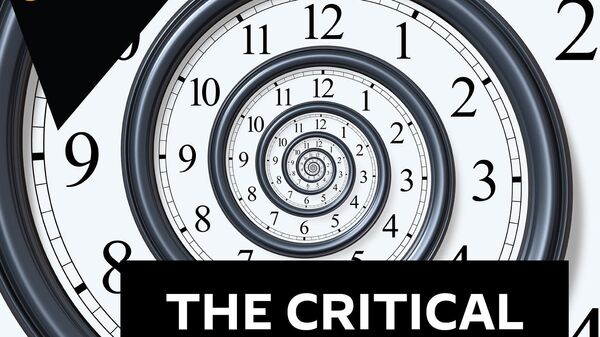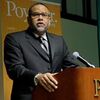Neil Clark, journalist and broadcaster, joins us to discuss a stunning turn of events in Assange's fight for freedom. A UK judge ruled Monday that the WikiLeaks co-founder can not be extradited to the US for prosecution. This ruling will most certainly lead to an appeal by the government and a final ruling by the British home secretary. Is this a victory for activism, a just ruling by the court or a prelude to another move by the deep state?
David Schultz, author and professor of political science and law at Hamline University, joins us to review and discuss the hotly contested Senate runoff races in Georgia. Republican Secretary of State Brad Raffensperger is again mired in controversy as a phone call between him and US President Donald Trump faces scrutiny. In the call, Trump can be heard asking Raffensperger to find enough votes to overturn US President-elect Joe Biden's win in the reliably red state.
Scott Ritter, former UN weapons inspector in Iraq, returns to discuss the Trump administration's last few weeks in control of American foreign policy. Acting Secretary of Defense Christopher Miller announced on Sunday that the aircraft carrier USS Nimitz will not be leaving the Persian Gulf, due to “recent threats” from Iranian leaders. The US recently sent B-52 high-altitude bombers and a nuclear submarine to the area in a show of force that many fear could be intended to spark a military conflict. Ritter discusses the prospect of war and whether the situation will improve under the Biden administration.
Mark Sleboda, Moscow-based international relations and security analyst, returns to discuss the prospect of better relations between Russia and the US under Biden. The president-elect recently signaled that he is ready to re-enter discussions about nuclear treaties. However, Biden also reportedly plans to punish Russia for the recent US government website hack, blame for which has been laid at the feet of the Kremlin despite an admitted lack of evidence. Also, Sleboda discusses the nearing completion of the Nord Stream 2 pipeline.
Professor Danny Shaw, author, activist and professor of Latin American studies, joins us to discuss media reporting on the recent parliamentary elections in Venezuela. A recent PBS report on Venezuela made erroneous claims about the elections and quoted US State Department talking points in favor of regime change. Rick Sterling traveled to the beleaguered South American nation as an election observer and, in an article for Antiwar.com, argues that the truth is far different from the dubious PBS claims.
Niko House, political activist, independent journalist and podcaster, returns to The Critical Hour to discuss the apparent civil war in the Democratic Party. Despite a campaign by online activists to secure a floor vote on Medicare for All in the House of Representatives, progressive legislators returned House Speaker Nancy Pelosi (D-CA) to her position as leader of the chamber without getting anything in return. Is #forcethevote the "Fort Sumter cannon" of an internal war between progressive activists and Democratic Party leadership?
Michael Wong, vice president of the San Francisco chapter of Veterans for Peace, joins us to discuss the strained ties between the US and China. "China’s relationship with the United States has reached a 'new crossroads' and could get back on the right track following a period of 'unprecedented difficulty,' senior diplomat Wang Yi said in official comments published on Saturday," Reuters reported. Also, the Trump administration is voicing displeasure after China and the EU last week announced that the two sides had completed negotiations on a bilateral investment treaty as scheduled. Is Washington's belligerence destroying its relationship with the EU?
Dr. Ranjeet Brar, British physician and National Health Service worker, returns to discuss the coronavirus crisis in the UK. A new South African mutation of the virus is causing great concern; some experts fear that current vaccines may be less effective against the new variant, while others are more optiistic. Also, the UK government is considering a second full lockdown as a dramatic uptick in COVID-19 cases threatens to wipe out any advances made in containing the deadly pathogen.
We'd love to get your feedback at radio@sputniknews.com




